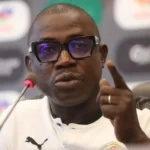José Mourinho has lifted the lid on one of the most intense moments of his managerial career, revealing how he deliberately tested Samuel Eto’o’s mental resilience ahead of a crucial Champions League clash during their historic spell at Inter Milan.
Reflecting on their time together in a recent interview with BBC Sport, Mourinho recalled the tense but ultimately rewarding week that preceded Inter’s decisive second-leg victory over Chelsea in the 2009–2010 Champions League Round of 16.
The match, played at Stamford Bridge, ended with Eto’o scoring the decisive goal that sent Inter through, cementing his role in what would become a treble-winning season.
“I ruined it for a week,” Mourinho admitted, describing how he spent the days leading up to the fixture relentlessly criticising Eto’o.
“I told him he wasn’t playing. I told him he was out of form. I was harsh. I pushed him on purpose. I needed to provoke a reaction.”
That reaction came at precisely the right time. Against a formidable Chelsea side, Eto’o delivered the perfect response to Mourinho’s psychological challenge, netting the winner and helping Inter eliminate the Premier League giants on their home turf.
The Portuguese manager, known for his tactical sharpness and emotional gamesmanship, said his approach was not without risk.
“You don’t do that unless you know the player,” he said. “Eto’o was mentally strong. Steel-minded. He never broke, he responded with fire.”
Eto’o’s goal at Stamford Bridge is still remembered fondly by Inter supporters, not just for its significance, but for what it represented. It was the fusion of elite mentality and world-class talent under Mourinho’s uncompromising leadership.
That 2009–2010 season went on to become one of the most successful in Inter Milan’s history with the club claiming the Serie A title, the Coppa Italia and the UEFA Champions League in a single campaign.
Mourinho and Eto’o would later reunite at Chelsea, but it is their first collaboration in Milan that remains etched in football folklore.
The mutual respect between the two, forged in moments of both triumph and tension, has never waned.
“Samuel was not just a striker. He was a warrior,” Mourinho said. “He never played for himself. He played for the badge, for his teammates and for the win.
That’s why he delivered when it mattered most.”
Despite Eto’o now facing challenges off the pitch as president of Cameroon’s Football Federation (Fecafoot), Mourinho made clear that the bond remains strong.
“I will always respect him. Even if we fought, even if I was tough, it was always to bring the best out of him. And he never let me down.”
The anecdote provides a rare glimpse into the high-stakes psychological battles that take place behind the scenes at the top level of the game.
It also illustrates the demanding nature of Mourinho’s managerial style, one that extracts excellence, even if it leaves bruises along the way.
In the end, that turbulent week between manager and striker proved to be a turning point in Inter Milan’s historic run and a testament to the powerful chemistry between two of football’s most iconic figures.
🔴 José Mourinho évoque la mentalité de Samuel Eto’o :
« L’exemple d’un gars fort mentalement : Samuel Eto’o. Il nous a fait gagner le quart de finale (C1 2010, ndlr) contre Chelsea. Il a marqué le but de la victoire à Stamford Bridge. Il a été fantastique ». ☝🏿🇨🇲
[🎥 BBC… pic.twitter.com/b4JW9rP4V5
— AllezLesLions (@AllezLesLions) April 23, 2025











